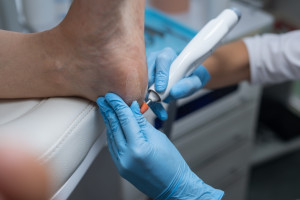PLN 1,878.91 is due each month for these diseases

Author: AN • Source: Rynek Zdrowia • Published: June 22, 2025 20:09
The Social Insurance Institution grants pensions not only for heart disease or cancer. The list also includes diseases of other types. Diagnosis alone is not everything. You still have to meet the conditions to receive the benefit.
- ZUS and the Ministry of Family, Labor and Social Policy remind that a disability pension is available to a person who has been recognized as being fully or partially incapable of performing gainful employment due to their health condition.
- Incapacity for work is assessed for a period not exceeding 5 years, unless, according to medical knowledge, there are no prospects of regaining the ability to work before the end of that period.
- As a result of the March indexation, the pension for total incapacity for work increased by PLN 97.95, reaching PLN 1,878.91 gross
- The pension for partial incapacity for work amounts to PLN 1,409.18
The disability pension is a benefit paid by the Social Insurance Institution. The last increase in the benefit was on March 1, 2025.
- Disability pension: PLN 1,878.91 gross .
- Pension for partial incapacity for work: PLN 1,409.18 gross.
Alcoholism also entitles you to payment.
Such a pension may be granted by ZUS as a disability pension if:
- the medical examiner determines that alcohol addiction and its effects (e.g. liver cirrhosis, encephalopathy, damage to the nervous system) prevent you from taking up work,
- the person meets the conditions regarding insurance length of service.
This benefit is not available to every addict, but only to those whose illness has caused permanent or long-term incapacity to work.
Who is entitled to a ZUS pension?ZUS and the Ministry of Family, Labor and Social Policy remind that a disability pension is available to a person who has been deemed to be wholly or partially incapable of performing gainful employment due to their health condition.
- A person is completely incapacitated to work if he or she has lost the ability to perform any work.
- A person who has lost, to a significant extent, the ability to perform work in line with his or her qualifications is considered to be partially incapable of work.
- If the body's efficiency is impaired to a degree that requires constant or long-term care and assistance from another person in meeting basic life needs, the inability to live independently is declared.
- The basic condition for obtaining a pension is the occurrence of total or partial incapacity for gainful employment due to a impairment of the body's functions and the lack of prospects for regaining the ability to work after retraining.
- Incapacity for work is assessed for a period not longer than 5 years , unless, according to medical knowledge, there are no prospects of regaining the ability to work before the end of that period, in which case incapacity for work is assessed for a period longer than 5 years.
- The right to a training pension is granted to a person who meets the conditions required for granting the pension and receives a decision on the advisability of professional retraining due to the incapacity to work in their previous profession.
- After granting a pension, the pension authority refers the person concerned to the district labour office to undergo training to prepare for obtaining a new profession.
- The training pension is granted for a period of 6 months . At the request of the starost, this period may be extended to a maximum of 30 months. Also, at the request of the starost, the period of 6 months may be shortened,
- The training pension amounts to 75% of the pension calculation basis, but not less than the amount of the lowest pension for partial incapacity for work.
- The amount of the pension for partial incapacity for work is 75% of the pension for total incapacity for work.
- A permanent pension is due to an insured person whose incapacity for work has been recognized as permanent.
- A periodic pension is due if the incapacity for work is temporary. It is due for the period specified in the decision of the pension authority. After this period, the insured person may apply to ZUS for an extension of the right to the pension for a further period. Any further right to the pension depends on the results of the findings contained in the decision of the ZUS medical examiner or the medical board.
The right to a disability pension is granted to an insured person who meets all of the following conditions:
- was deemed unfit for work,
- has a required contributory and non-contributory period, appropriate to the age at which the incapacity for work occurred,
- the incapacity for work arose during periods strictly specified in the Act, e.g. during the period of insurance, employment, receipt of unemployment benefits, receipt of social insurance benefits (sickness or care) or no later than within 18 months of the end of these periods.
The requirement that the incapacity for work must have occurred within the time specified in the Pension Act does not apply to a person who meets all of the following conditions:
- was deemed to be completely incapable of work,
- meets the condition of having the required contributory and non-contributory period and
- has a contributory and non-contributory period of at least 20 years (in the case of women) and 25 years (in the case of men).
The list of diseases that are most often the reason for granting a pension from ZUS includes, among others:
- circulatory system diseases;
- diseases of the nervous system;
- respiratory diseases
- eye diseases
- mental and behavioral disorders such as schizophrenia or depression;
- diseases of the nervous system;
- work-related malignancies;
- skin diseases;
- chronic diseases of the musculoskeletal system
- infectious and parasitic diseases;
- diseases of the musculoskeletal system, muscular system and connective tissue;
In addition, let us also add occupational diseases, among which the most frequently diagnosed are:
- pneumoconiosis,
- infectious diseases,
- voice damage,
- hearing loss,
- diseases of the peripheral nervous system,
- chronic diseases of the musculoskeletal system,
- skin diseases
- malignant tumors.
The contributory and non-contributory period required to grant a pension depends on the age of the person at which the incapacity for work occurred. This period is:
- 1 year - if the incapacity for work occurred before the age of 20,
- 2 years - if the incapacity for work occurred after the age of 20 to 22,
- 3 years - if the incapacity for work occurred after the age of 22 to 25,
- 4 years - if the incapacity for work occurred at the age of 25 to 30,
- 5 years - if the incapacity for work occurred after the age of 30.
- The condition of the required contributory and non-contributory period is not required of an insured person who has become incapable of working due to the effects of an accident on the way to or from work - emphasizes the Ministry of Labor. Importantly, the period of the required 5 years in relation to persons whose incapacity for work arose after reaching the age of 30 must fall within the last ten years falling before the date of filing an application for a pension or before the date on which the incapacity for work arose.
- The condition of having a five-year contributory and non-contributory period in the ten years preceding the date of filing an application for a disability pension or the date of occurrence of the disability does not have to be met by persons who prove a contributory period of at least 25 years for women and 30 years for men and are considered completely incapable of work. The date of occurrence of the complete disability is not important in this case - officials remind.
And they add: if the insured person has not reached the required contributory and non-contributory period, depending on the age at which the incapacity for work occurred, the condition of having this period is considered to be met if the insured person was registered for insurance before reaching the age of 18 or within 6 months after completing education in a post-primary school, post-secondary school or university and until the day the incapacity for work occurred had contributory and non-contributory periods without interruption or with interruptions not exceeding 6 months.
Copyrighted material - reprint rules are specified in the regulations .
rynekzdrowia



















